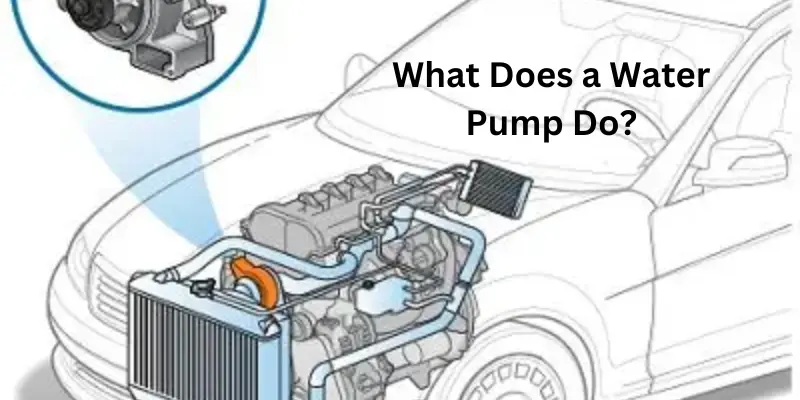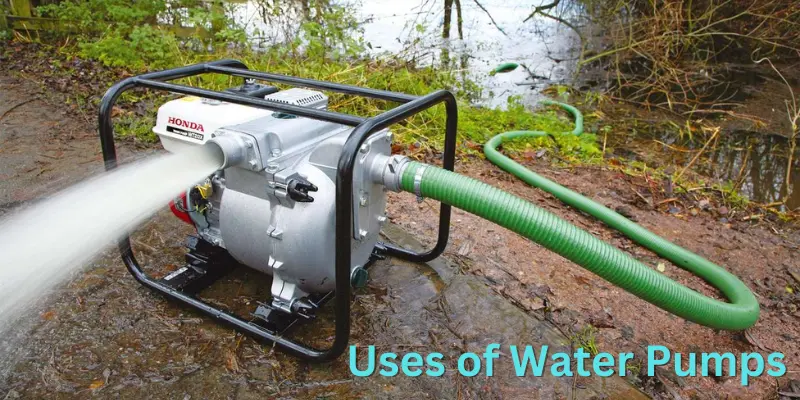What Does A Water Pump Do – Step by Step Guide
Updated: 30 Oct 2024
29
Introduction
What does a water pumps do are essential devices that significantly impact our daily lives, often without us being aware of their presence. These versatile machines are designed to transport water from one location to another, making them vital for a wide range of applications, from providing residential water supply to supporting agricultural irrigation and industrial processes.
Consider the implications of living without access to clean water for drinking, cooking, or bathing; water pumps are key to ensuring a consistent and reliable supply. They can be found in various settings, including homes, farms, and factories, where they contribute to everything from vibrant gardens to efficient manufacturing operations.
How water pumps function and the different types available, you can make informed choices to meet your specific needs. This article will delve into what water pumps are, how they work, the various types available, their applications, and maintenance tips. Whether you are a homeowner, a farmer, or simply curious about this crucial technology, this guide will enhance your appreciation for the role water pump play in our modern world.
Table of Contents
What Does a Water Pump Do?
A water pump is a device that transfers water from one location to another. You can think of it like a large straw that draws in water and pushes it out elsewhere. Water pumps are essential for many reasons, aiding us in various aspects of our daily lives.

For instance, when you turn on the tap at home, a water pump may be working quietly behind the scenes to deliver fresh water. It draws water from sources like a well, river, or large storage tank and channels it through pipes directly to your sink or shower. This process ensures that you have clean water for drinking, cooking, and bathing.
In agriculture, water pumps are used to irrigate crops. Farmers rely on them to transport water from lakes or rivers to their fields, promoting healthy plant growth. Additionally, in industrial settings, water pumps are crucial for cooling machinery and ensuring smooth operation.
You May Also Visit It!
Spray Arc Welding – Step by Step Guide – Need Metals
Pre Coat Metal | Define Complete Guide- Need Metals
Mcelroy Metals – Types, Uses And Properties – Need Metals
Will Magnets Stick to Stainless Steel Refrigerator – Complete Guide
Why Is a Water Pump Important?
Water pumps play a crucial role in our daily lives and various industries. Here’s why they are so important:
1. Access to Clean Water
- Water pumps ensure that clean and safe drinking water reaches our homes. Without them, we would struggle to get water from wells, lakes, or rivers.
- They help supply water for cooking, bathing, and cleaning, which is essential for our health and hygiene.
2. Agricultural Efficiency
- In farming, water pumps are vital for irrigating crops. They help farmers access water from nearby sources, ensuring plants receive the necessary hydration to grow.
- This leads to better crop yields, supporting food production and security for communities.
3. Industrial Use
- In factories, water pumps are used for cooling machines and processes, preventing overheating and maintaining equipment efficiency.
- They also help in transporting liquids for manufacturing and processing, which is essential for various industries.
4. Flood Control and Drainage
- Water pumps are crucial for managing floodwaters in areas prone to flooding. They can quickly remove excess water, protecting homes and infrastructure.
- They are also used in drainage systems to keep areas dry, preventing water damage and creating safe living environments.
5. Enhancing Everyday Life
- Water pumps make it easier for us to enjoy outdoor activities, such as watering gardens or filling pools, enhancing our quality of life.
- They contribute to the aesthetic appeal of landscapes by helping maintain beautiful parks and gardens.
Water pumps are essential for ensuring access to clean water, supporting agriculture, aiding industries, managing floodwaters, and improving our everyday lives. Their role in society cannot be overstated, as they are integral to health, food production, and overall community well-being.
Types of Water Pumps
Water pumps come in different shapes and sizes, and each type has its special job. Here are some common types of water pumps that you might find interesting:
1. Centrifugal Pumps
- How They Work: These pumps use a spinning part called an impeller to move water. When the impeller spins, it pushes the water outward, creating a flow.
- Where They’re Used: You can find centrifugal pumps in homes, like in washing machines and swimming pools, and in various industries. They are great for moving large amounts of water quickly!
2. Submersible Pumps
- How They Work: As the name suggests, submersible pumps are designed to work underwater. They are sealed to keep water out and are usually used to pump water from deep wells or flooded areas.
- Where They’re Used: These pumps are perfect for emptying basements after a flood or providing water from deep underground.
3. Jet Pumps
- How They Work: Jet pumps use a jet of water to create suction and pull water from a well. They have a motor above the ground and a pump down in the water.
- Where They’re Used: You’ll often find jet pumps in rural areas where water needs to be drawn from wells.
4. Diaphragm Pumps
- How They Work: These pumps use a flexible diaphragm that moves up and down to create suction and push water. They are great for handling thick liquids or slurries.
- Where They’re Used: Diaphragm pumps are commonly used in chemical industries and to pump water with some solid particles in it.
5. Vacuum Pumps
- How They Work: Vacuum pumps remove air from a closed space to create a vacuum, which can then pull in water or other liquids.
- Where They’re Used: These pumps are often used in laboratories, in car repair shops, and for special applications like aquariums.
Each type of water pump has its unique way of working and is designed for specific tasks. From moving water quickly to pulling it from deep underground, water pumps are essential tools that help us in many different areas of life.
You May Also Visit It!
Forging Process | Metal Becomes Tools and Parts – Easy Explanation
History of Nickel | From Ancient Coins to Modern Technology
Metal Does a Magnet Not Stick To | Uses and Types
Physical Properties Are Shared by Most Metals
Uses of Water Pumps

Water pumps are incredibly useful machines that help us in many different ways. Here are some common uses of water pumps that you might find interesting:
1. Home Water Supply
- What They Do: Water pumps bring fresh water into our homes for drinking, cooking, and cleaning.
- Example: When you turn on the faucet, a water pump might be working to deliver water right to your sink.
2. Irrigation for Farms
- What They Do: Farmers use water pumps to move water from rivers, lakes, or wells to their fields.
- Example: This helps crops grow by providing them with the right amount of water, especially during dry seasons. Without pumps, many plants wouldn’t survive!
3. Swimming Pools
- What They Do: Water pumps keep swimming pools clean and safe by circulating and filtering the water.
- Example: They remove dirt and debris, making sure that the pool water stays clear and healthy for swimming.
4. Flood Control
- What They Do: During heavy rains or storms, water pumps can help remove excess water to prevent flooding.
- Example: They are often used in basements to pump out water when it floods, keeping homes safe and dry.
5. Industrial Applications
- What They Do: In factories, water pumps are used to cool machines and transport liquids needed for production.
- Example: They play a crucial role in processes like cooling down engines or moving chemicals safely.
6. Aquariums and Fish Tanks
- What They Do: Water pumps help keep the water clean and oxygenated for fish and plants in aquariums.
- Example: They ensure that the water is circulated properly, creating a healthy environment for the fish to live in.
7. Fire Fighting
- What They Do: Water pumps are used by firefighters to draw water from hydrants or other sources to put out fires.
- Example: They help deliver large amounts of water quickly to extinguish flames and protect buildings.
Water pumps are essential tools that help us in many areas of life, from keeping our homes supplied with water to ensuring our crops grow healthy. Understanding how these pumps work and their various uses helps us appreciate their importance in our daily activities!
Advantages and Disadvantages of What Does A Water Pump Do
Water pumps are incredibly useful tools, but like any other machine, they have their pros and cons. Here’s a look at some of the advantages and disadvantages of using water pumps:
Advantages of What Does A Water Pump Do
| Advantages |
|---|
|
Disadvantages of What Does A Water Pump Do
| Disadvantages |
|---|
|
Water pumps are essential for many aspects of daily life, from providing clean water to managing floods.
Conclusion
Water pumps are vital tools that help us move and manage water in our daily lives. They provide access to clean water for drinking, irrigation for farms, and even help control floods.
While they offer many benefits, such as efficiency and versatility, it’s also important to be aware of their disadvantages, like energy consumption and maintenance needs.
By understanding how water pumps work and their impact, we can better appreciate their role in making our lives easier and healthier.
Bonus Point
- Types of Pumps for Specific Needs: Different pumps serve unique purposes. For instance, centrifugal pumps are best for moving large amounts of water quickly, while submersible pumps are ideal for deep wells. Choosing the right type is crucial for efficiency.
- Sustainability Options: Solar-powered water pumps are becoming popular as they are eco-friendly and can operate without electricity. This is especially beneficial for farmers in remote areas where traditional power sources are unavailable.
- Regular Maintenance Tips: To keep your water pump running smoothly, it’s important to check for leaks, clean filters regularly, and schedule professional maintenance. This helps extend the life of your pump and ensures it operates efficiently.
- Understanding Water Pressure: Water pumps can increase water pressure in homes, which is essential for showers and faucets. However, too much pressure can cause leaks or damage plumbing, so it’s important to monitor it.
- Impact on Agriculture: Water pumps are crucial in agriculture for irrigation, enabling farmers to grow crops in areas with limited rainfall. This has a significant impact on food production and security.
You May Also Visit It!
Magnetic Materials | What Materials Are Attracted By Magnets – Benefits
Yield Strength of Metals: Types, Uses and Clear and Simple Overview
Heat Treating Steel | Key Temperatures for Hardening, Types and Uses
1075 or 1095 Steel | Find the Best Steel for Your Knife
Aluminium Metal, Types, Uses, Properties and Rust Aluminium
Please Write Your Comments